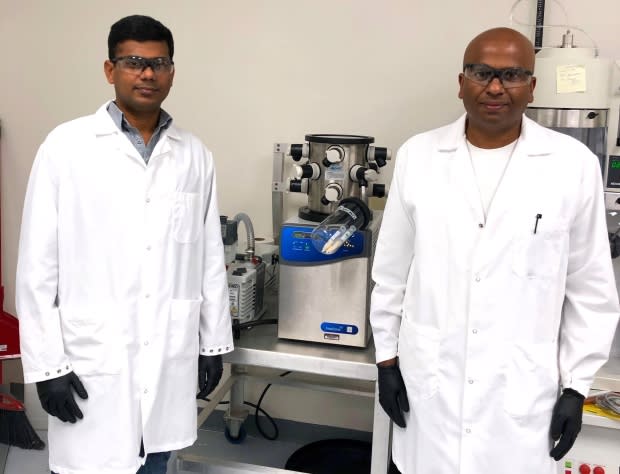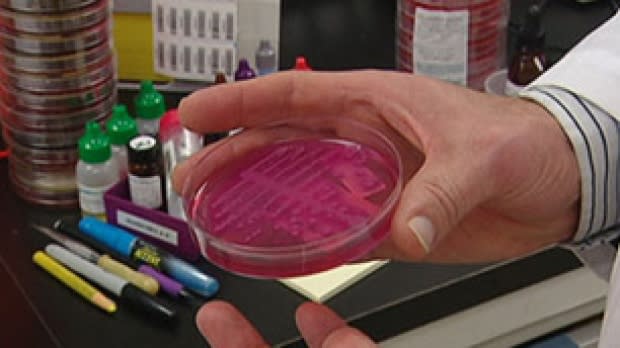Newfoundland scientists find a new way to fight superbugs
A Newfoundland company is working to level the field in the fight against antibiotic-resistant bacteria that could render diseases like pneumonia, tuberculosis and strep throat untreatable.
The World Health Organization classes those bacteria — or superbugs — as one of the biggest threats to global health, and Polyamyne Nanotech of St. John's hopes to fight resistance by preventing people from catching them in the first place.

Bala Kishan Gorityala, who has a background in antibacterial drug discovery, and Ramesh Kumar Mani, whose past work includes developing polymeric composites, are the company co-founders.
"We are trying to develop new antimicrobial coatings that could be coated on all the surfaces, including walls, tabletops, keyboards and door handles," said Gorityala.
"So whenever the bacteria comes in contact with the antimicrobial coatings, it gets immediately killed. And more importantly, it does not contribute to the resistance."
Resistance happens naturally, but human behaviours have caused it to happen more quickly and more often.

Overprescribing antibiotics is one problem; if people take drugs they don't need or don't finish, bacteria can survive the medication and mutate to become immune to it.
Hospitals are petri dishes for superbugs. One in nine patients gets an infection in hospital they didn't have when they were admitted, and about 8,000 Canadians die of infection every year, making it the fourth-most common cause of death in the country.

And Ramesh Kumar Mani says if something doesn't help stop the spread of superbugs, the consequences will be devastating.
"If we do not find a new solution and the trend continues, it is expected that by the year 2050, up to 10 million people could be dying every year of infection," he said. "And it would cost up to a hundred trillion dollars to the world economy."
Lack of new antibiotics
Polyamyna's work is particularly crucial, said Mani, because as superbugs spread, there are few new antibiotics available to fight them. Drug companies developing products for the human population are strictly regulated, requiring multiple clinical trials, which are expensive and take a long time to run.
Antibiotics aren't profitable because they're for short-term use, doctors are advised to prescribe less of them, and customers want cheap treatments, he said, adding companies don't want to pay a lot to develop a drug that doesn't bring in much value in return.

Polyamyna's coating comes at the problem from another direction. Bacteria are most often picked up by simple touch, so instead of trying to kill the infection once superbugs have entered a body, the coating kills them, keeping common surfaces germ-free.
The project is part of a larger attempt by government and researchers to develop a medical technology industry in the province.
Dr.Andrew Smith, a professor at Memorial University's school of medicine, is part of that group effort.
"We work in a hospital and we know this is almost a breeding ground for all these really serious bacteria. And oftentimes, this is where you'll go to find the most sinister bugs," he said.
"Not having a tool that can effectively deal with them is very problematic, both for the health-care workers who are working to provide care and for the patients who are coming to the hospital to get care. When you look at something like Polyamyna is doing … a coating technology that can actually prevent the growth of these multi-drug resistant bacteria, that's really, really exciting, and it has tremendous promise and potential."
Pilot project starting soon
Gorityala says the company has patented its formula for the coating, but he's not giving away the secret ingredients.
Eastern Health has agreed to a pilot project, and the company directors hope they can stop superbugs in their tracks while researchers work to develop new antibiotics to fight the bacteria that do get through and make us sick.
Read more from CBC Newfoundland and Labrador

